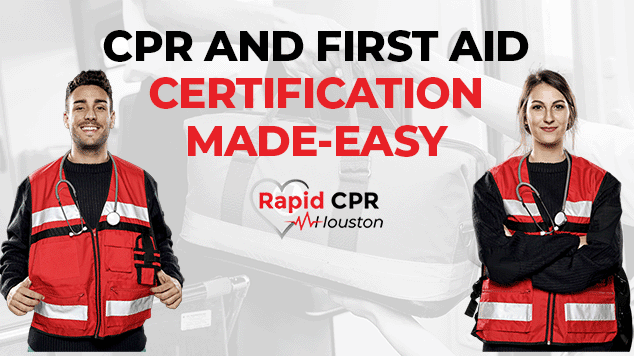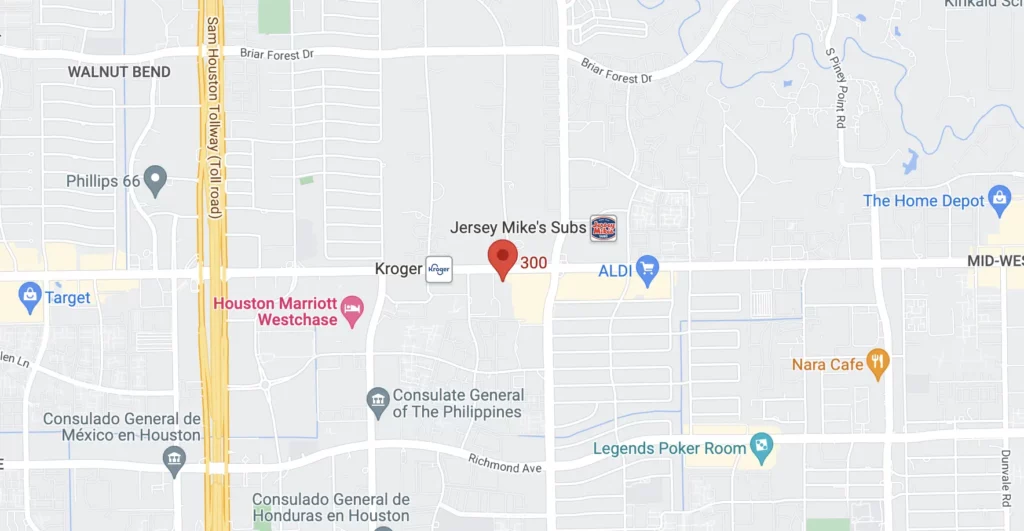Imagine standing on the edge of a cliff. One step forward could lead to a potentially life-threatening fall; one step back, safety. But what if you were equipped with a lifeline—a safety harness that could save your life? A CPR certification serves the same purpose in emergency medical scenarios—it’s your lifeline, enabling you to jump in and possibly save lives during unforeseen events.
If you’re already certified with Rapid CPR Houston, kudos to you! If not, it’s never too late, and if you are, knowing the expiration date is as crucial as acquiring the skill itself. After all, an expired lifeline is hardly effective in emergency situations.
So how long does this crucial certification last? Strap in and join us as we dive into the details of the CPR certification validity period. We promise it will be a lifesaving revelation.
Explaining CPR Certification
Cardiopulmonary resuscitation (CPR) certification is a process that involves receiving training in techniques that can save a person’s life in an emergency situation. CPR certification is aimed at providing people with the knowledge and skills to respond effectively to cardiac arrest or other medical emergencies such as choking, drowning, or severe allergic reactions.
To obtain this certification, candidates take classes from certified instructors, such as those from Rapid CPR Houston. These classes teach participants how to recognize emergency situations, how to perform CPR on adults, children, and infants, and how to use AED (Automated External Defibrillator) machines effectively. Classes range from basic classes that teach people how to perform chest compressions and rescue breaths to more advanced courses that are designed for healthcare professionals.
Participants who have undergone CPR training have different reasons for taking the course. Some are professionals who work in fields that require their staff to be familiar with first aid response protocols, while others may simply want to learn valuable life-saving skills. Regardless of the reason for doing so, undergoing proper CPR training is essential.
Statistics indicate that approximately 80% of all cardiac arrests take place at home, where individuals are bystanders or family members who need prompt emergency assistance. With that said, attending a CPR course and receiving certifications can help save someone’s life by preparing people to confidently administer these skills if ever necessary.
There may be some concerns about the lack of need for CPR certification since not everyone encounters or needs to administer emergency first-aid response procedures daily. However, the benefits of being equipped with this knowledge far outweigh any drawbacks. It does not hurt to be prepared for emergencies when they do happen.
- As per the guidelines from the American Heart Association and ECC/ILCOR, a CPR certification typically lasts for two years.
- Rapid CPR Houston follows these guidelines; hence, their certificates are also valid for a period of two years.
- To maintain current certification status, professionals are required to renew their CPR certification every two years, and Rapid CPR Houston offers renewal courses for this purpose.
Importance of CPR Certification
Obtaining a valid CPR certification from a reputable organization such as Rapid CPR Houston is crucial because it helps minimize the risk of loss of life due to a cardiac arrest. Any person can experience a cardiac arrest at any time, regardless of age or medical history, and prompt response in such cases is a crucial factor for survival.
Anecdotal evidence suggests that the desire to obtain CPR certification arises from previous experiences with not knowing what to do during an emergency. For example, college student Lily recounts how her younger brother choked on a piece of candy when they were alone at home. Being only 12 years old at the time, she had no idea what to do and felt helpless until their parents arrived. Since then, she has made it a personal mission to always be prepared for unexpected emergencies by being CPR certified.
Furthermore, given that sudden cardiac arrest mortality rates are high and calling 911 alone is not enough, having basic first aid skills and training empowers people to respond effectively when faced with those situations before medical assistance arrives.
Some may argue that there is little practical use for this kind of skill in some professions or in our daily lives. However, while it is true that not everyone encounters emergency situations frequently, taking CPR classes and remaining updated on current guidelines ensures individuals an awareness of how to act if confronted with other kinds of unforeseen events like choking or allergies. Moreover, being prepared and capable of performing the necessary actions if needed can assure peace of mind in both your career and personal life.
Now that we’ve covered the importance of obtaining a CPR certificate, let’s dive into one common question people have: “How long does my certification last?”
CPR Certification Lifespan
CPR certification is a vital skill that can mean the difference between life and death in an emergency situation. However, many people are uncertain about how long their certification lasts and when they need to recertify. At Rapid CPR Houston, we believe that it’s essential for everyone to understand the lifespan of their CPR certification and the importance of renewing it regularly.
The lifespan of a CPR certification can vary depending on a few factors. The most common certification duration is two years, although some providers may offer certifications that last for longer or shorter periods. For example, if you completed your certification with another provider, be sure to check how long it is valid and whether it meets American Heart Association (AHA) guidelines.

Suppose you work in healthcare. In that case, it’s worth noting that the AHA requires healthcare providers to renew their Basic Life Support (BLS) certification every two years as part of their professional development. This renewal ensures that CPR skills and knowledge remain current and enables providers to provide high-quality care to patients.
Regular recertification is crucial because CPR guidelines and best practices change over time as new research emerges. By staying up-to-date with these changes, you can ensure that you are providing the most effective care possible in emergency situations.
Some people may argue that they don’t need to renew their certification regularly if they haven’t had to perform CPR since their initial certification. However, emergencies can happen at any time, and you never know when you might need to use your skills. Additionally, certification renewal helps refresh your knowledge and skills in case of an emergency.
Now that we’ve discussed the lifespan of a CPR certification, let’s explore the regularity of renewal.
Regularity of Renewal
As mentioned earlier, most CPR certifications last for two years, after which they need to be renewed. The AHA recommends that everyone renew their CPR certification at least every two years. However, some occupations require more frequent renewal, such as healthcare providers, who need to renew their BLS certification every two years.
Suppose you’re a teacher who obtained your CPR certification during college and hasn’t used it since then. In that case, you should consider renewing your certification to ensure that you can provide life-saving care if needed. You never know when an emergency might occur in the classroom.
CPR skills must be kept current because techniques and guidelines change over time. Regular training helps ensure that you are prepared to respond appropriately in an emergency situation.
Implications of Expired Certifications
Having an expired CPR certification can have serious implications, particularly in cases where rapid action is required to save a life. While the expiration date may seem like just another bureaucratic detail, the reality is that it reflects the constantly evolving standards and guidelines of CPR techniques.
Without proper training and recertification, you may unknowingly be using outdated methods, which could cause more harm than good. In addition, employers are often legally obligated to ensure that their staff members hold current certifications, or they could face liability issues if someone were to suffer harm due to an unrecognized expired certification.
Expired certifications can also lead to lost opportunities for employment, promotions, or new certifications. For example, many advanced medical programs and schools require current CPR certification as a prerequisite for entry, so having an expired certification could prevent you from achieving your career goals.
A recent study found that over 60% of Americans don’t know how to administer CPR properly. However, even those who have been trained could find themselves in a difficult situation if their certification has expired without their knowledge. Costly lawsuits against corporations have happened because they failed to renew their staff’s CPR certification in time.
Rapid CPR Houston’s Recertification Program
At Rapid CPR Houston, we understand the importance of maintaining up-to-date skills and certifications when it comes to CPR and first aid training. That’s why we offer a comprehensive recertification program that ensures our students remain current with the latest techniques and protocols.
Our recertification program includes a thorough review of essential topics such as chest compressions, rescue breaths, and defibrillator usage. We also give our students hands-on practice with realistic simulations so that they feel confident using their skills in real-life emergencies.
Our process is designed to be quick and convenient so that busy professionals can easily fit recertification into their schedules. Our experienced instructors will customize the program based on the individual’s current knowledge and skills, making it an efficient use of time.
Additionally, our recertification program is test-focused, with American Heart Association guidelines as references. We want all of our students to have the best chance of passing the CPR recertification course the first time around, so they can get back to helping others.
Numerous studies show that hands-on learning can dramatically increase skill retention. At Rapid CPR Houston, we know that practicing CPR isn’t something you can learn from a textbook. Our classes are taught by certified instructors who don’t rely on lectures alone but rather on hands-on training.
With the potential consequences of expired certifications in mind, it’s important to prioritize maintaining your credentials with rigorous and up-to-date training programs like those offered at Rapid CPR Houston.
The Process of Recertifying with Rapid CPR Houston
Recertification is essential to ensuring that one’s CPR skills remain up-to-date and effective. Rapid CPR Houston offers a streamlined process for individuals who need to renew their certifications. This process is designed specifically for those who are short on time but refuse to compromise on quality.
Let’s say you completed your CPR training with Rapid CPR Houston two years ago, and your certification is about to expire. You can easily recertify by contacting us at 832-523-9827 to schedule a renewal class at our location in Houston, TX. You can also go online and sign up for one of our recertification classes, which are available at flexible times that suit your schedule.
Our recertification program is concise but comprehensive, providing updates and refresher courses that build on the knowledge previously gained from initial certification training. During the course, we review previous techniques while also incorporating any updates or new information about lifesaving procedures and devices like AEDs.
At Rapid CPR Houston, we offer hands-on instruction from experienced instructors certified by well-reputed organizations such as the Red Cross or the American Heart Association (AHA). We follow the updated guidelines set by these reputable organizations meticulously because this ensures that the learned skills are consistent with national standards.
In conclusion, recertification is a must for anyone with CPR training. Rapid CPR Houston guarantees to deliver the most updated knowledge and techniques necessary for effective lifesaving procedures. Renewing certifications is easy, as our experienced Red Cross and AHA certified instructors offer workshops that can be attended online or in person at times suitable for students. Contact us today to get your CPR Recertification from Rapid CPR Houston!





